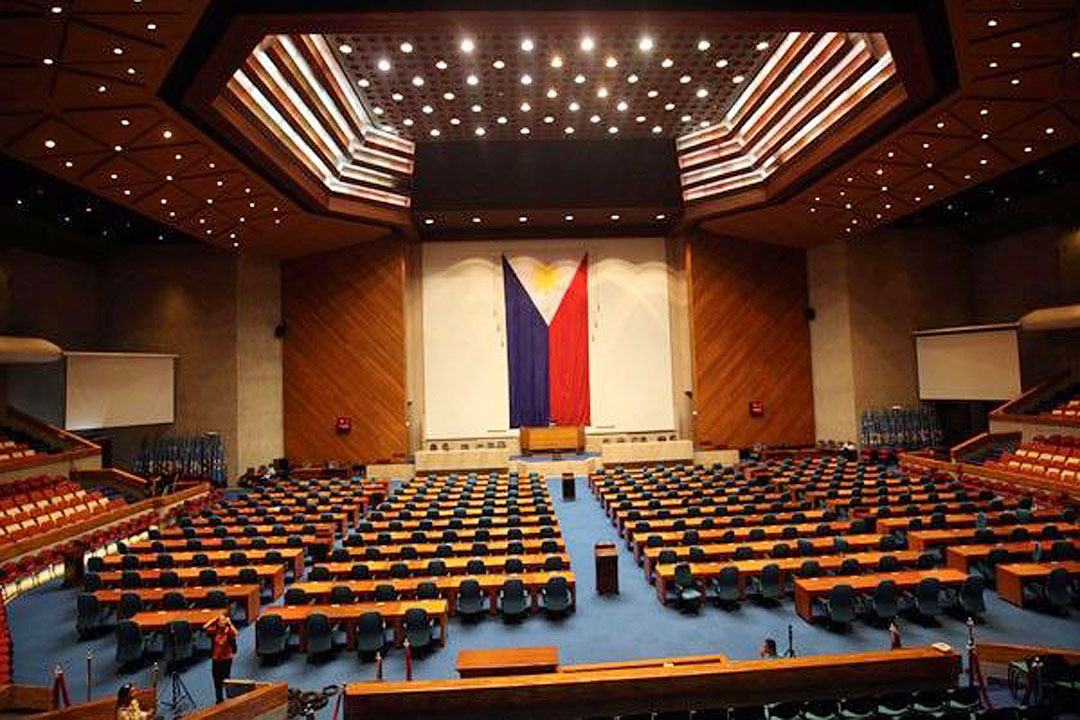Local advertisers wary of impact of economic ‘Cha-cha’ on industry

PHILIPPINE advertising agencies and groups said on Thursday that the attempt to fully liberalize their sector through Charter change (“Cha-cha”) and open it to full foreign ownership could lead to market consolidation, potentially displacing local players and resulting in a loss of connection with Filipino audiences.
Focus on the advertising came to view as the Senate continued public hearings on the proposal to amend the restrictive provisions of the 1987 Constitution.
Senator Juan Edgardo M. Angara, who chairs the subcommittee on constitutional amendments and revision of codes, said it may be necessary to include the advertising industry in the proposed “Cha-cha” as foreign players have already established markets in the country without undergoing regulations.
“Actually, it seems that advertising is already global,” he told reporters in mixed English and Filipino after the hearing, noting that the internet has allowed streaming platforms such as American video platform YouTube into the Philippine market without undergoing local regulations.
“You already have freelancers online so, in effect, it seems that they have already bypassed regulations,” he said. “The reality is that foreign talent is being hired by local advertising agencies, local talent is also being hired by foreign advertising agencies.”
“So, in a way, the distinction between ownership is no longer that important,” he concluded.
Stakeholders of the advertising sector were present at the hearing including the Philippine Association of National Advertisers (PANA), which said the existing 70-30 split investment model in favor of Filipino ownership “continues to prove its efficacy in navigating the complexities of the contemporary advertising landscape.”
Resolution of Both House No. 2 seeks to amend the Charter’s ownership provisions on public utilities, education, and advertising and insert the phrase “unless otherwise provided by law.”
PANA — in its position paper, a copy of which was obtained by BusinessWorld — said liberalization “may increase the Philippines’ dependency on foreign investment in the advertising sector.”
“While foreign direct investment can bring in capital and expertise, overreliance on foreign firms could undermine the development of domestic capabilities and hinder the growth of indigenous advertising agencies,” it said in a position paper.
It said the possible influx of foreign players in the Philippines would pose significant risks to local advertising firms, particularly smaller entities, struggling to match the scale and reputation of their international counterparts.
“Consequently, there’s a looming risk of market consolidation, potentially displacing domestic businesses and hindering the growth of indigenous entrepreneurship — an antithesis to the overarching Philippine agenda of fostering local enterprise,” it said.
It also warned that there’s a risk of diluting the “distinct cultural identity and authenticity of Philippine advertising,” with foreign agencies potentially “prioritizing global trends and standardized approaches over locally relevant and culturally resonant messaging.”
It could lead to “a homogenization of advertising content and a loss of connection with Filipino audiences.”
It also warned of a possible job displacement and wage suppression in the local sector, noting that “foreign firms may bring in their own talent or outsource work to lower-cost markets, resulting in fewer opportunities for Filipino practitioners.”
“Additionally, the pressure to remain competitive in a liberalized market may drive down wages and benefits for advertising professionals.”
Should foreign players dominate the local advertising sector, “there may be less incentive for homegrown talent to pursue innovative approaches that reflect Philippine culture and values,” PANA also said, adding that it could “stifle creativity and limit opportunities for local practitioners to showcase their unique perspectives on a global stage.”
The Out-of-Home Advertising Association of the Philippines, for its part, said the advertising industry must be controlled and reserved for Filipinos because it is “exceedingly imbued with national and public interest that directly affects the lives of the general body politics in its capacity to mold social values and consciousness.”
“Also, the framers saw fit to require that all the executive and managing officers of the advertising industry must be citizens of the Philippines to give emphasis to the importance of the role that the advertising industry plays,” it said in its position paper obtained by BusinessWorld.
The Charter change proposal in both houses of Congress seeks to boost the entry of foreign direct investments into the Philippines, which has been lagging behind its Southeast Asian peers.
Net FDI inflows declined by 6.6% to $8.9 billion last year from $9.5 billion in 2022, according to data from the central bank, marking a second straight year of decline. However, it exceeded the central bank’s projection of $8 billion for the full year.
Mr. Angara said it’s necessary to insert the phrase “unless otherwise provided by law” in the ownership provision on the advertising sector so that “future generations” would not struggle to cope with the changing time.
“Cross-border transactions, it’s already being done,” he said, referring to the transfer of advertising materials between market players from various countries.
GMA Network Inc., the country’s largest media network to date, said that while it agrees with the proposal to relax foreign ownership restrictions in the advertising sector, it believes that the retention of “majority control ensures that the local industry will not be exploited by foreigners to the detriment of their Filipino counterparts.”
If the government really wants to produce additional funds through the advertising sector, it should focus on how to tax “global digital titans” who rake in revenue from the Philippines, the media network said in its position paper obtained by BusinessWorld.
Two state-run television networks, meanwhile, were highly critical of the economic charter change proposal in general, with People’s Television Network saying, “it opens a Pandora’s box of endless possibilities of legislation which is placed beyond the reach of ordinary citizens to oppose or approve through the referendum process.”
“Any amendment to be presented to the people should be spelled out in no uncertain terms,” it said. “The proposed amendment blind-sides the Filipino people, because their vote in the plebiscite will be applied to future legislation which is unknown at the moment the vote is cast.”
PTV said allowing future legislation to amend 70% capital ownership in favor of Filipinos in the advertising sector “may be innocuous but its implications to the very limited advertising market is far reaching.”
“The ordinary Filipino investor had no resource because there is no resort to the referendum process in ordinary legislation,” it added.
The Intercontinental Broadcasting Corporation (IBC) said the current charter change proposal “makes the sovereign and patrimonial rights and assets of the state a legitimate subject of the commerce of man.”
It gives an impression Juan de La Cruz is a man bereft of discernment for allowing a foreigner to advise him on how to facilitate entrusting his castle, home, patrimony, and sovereign rights to a foreign entity trusting that the latter has his interest at heart.”
PANA, the group of Philippine advertisers, urged policymakers to “meticulously assess and address” potential downsides “to ensure a balanced and sustainable approach to industry reform.” — Kyle Aristophere T. Atienza



